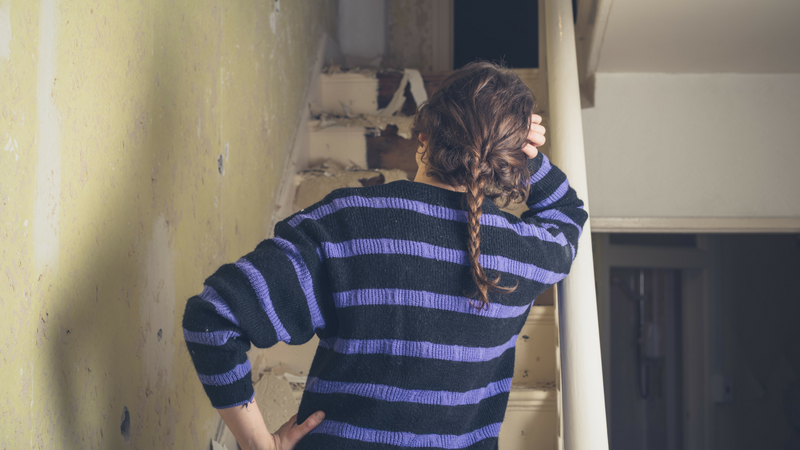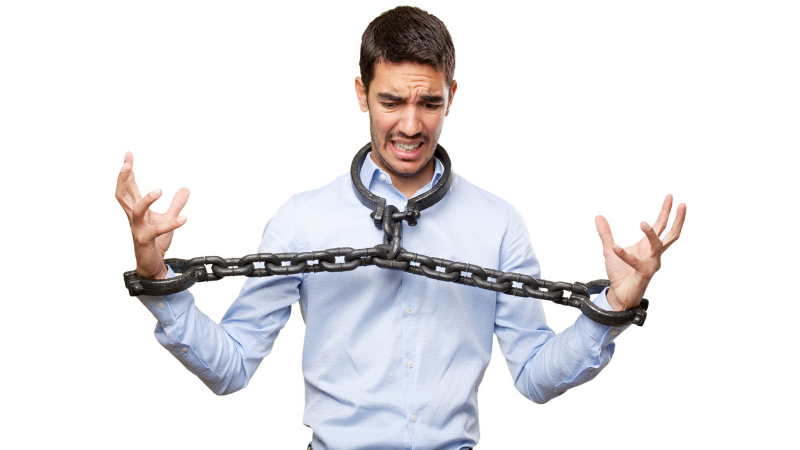Causes of Depression: What Are Your Risk Points?
This article on the causes of depression is the third in our series on depression. You can find the first article here, and the second here.
“What do you think is the cause of the depression?”
I remember when I first told my husband about my diagnosis of depression. To me, it was hopeful and helpful information; I had a name for my experience, and that meant that I had a path forward to feeling better.
Dan had a different reaction, although he didn’t verbalize it to me at the time. Dan was married once before he met me, and is afraid of our marriage failing, too. (I think it’s one reason he works so hard at our marriage; he wants to know that, were it to fail, he could look back on the experience with a clean heart.)
As he later expressed to me, his concern was that the cause of the depression was unhappiness in our marriage and that divorce was on the horizon. He felt gut-punched because he hadn’t seen it coming.
What did he do? How did he miss the signs? What did the future look like? How should he be planning?
Questions tumbled one upon the other in his mind as he tried to make sense of the situation and what I was going through. He worked at being supportive even as he eyed his cloud of doom hovering before him.
It was tough. It was tough on both of us. It put me in a position to defend my experience and give Dan hope when I was already struggling to find hope myself. The person I relied on most was pulling back – not a lot, but some – and I didn’t know how to help myself, let alone help Dan.
It was confusing for him when I told him I couldn’t point to any one thing as the cause of the depression, although I could roughly trace the timeline.
Not knowing what triggered my depression made him feel helpless. How could he help me if there wasn’t a specific problem to solve?
The Comfort of Having a Trigger
From listening to others’ experiences, Dan is not alone in this thinking. Knowing what kicked off a depression helps our loved ones make sense of the situation.
It signals a way for them to lean into us and support us. It gives them a way to help us remain accountable for working our road to recovery. If we are supposed to eat healthier, then they can cook differently or question why we made that McDonald’s run today.
If it’s exercise, they can join us at the gym.
There’s a lot of comfort in knowing the causes of depression. It quantifies the experience and gives hope that it can be avoided again.
One thing I’ve learned is that they are right: Depression always has a cause. They are also wrong: Sometimes, it’s still a problem that can’t be fixed. Sometimes, we can only learn to manage the symptoms and work to avoid the causes of depression.
Brain Chemistry
The more research gets done, the more the medical community becomes convinced that depression is a genuine medical issue.
In fact, we can now point to MRIs and see how depression manifests itself in our brains. A depressed mind looks different than a healthy brain, or a bipolar brain, or an ADHD brain, although there are some overlaps with other disorder (which is why we can’t diagnose depression, etc. via an MRI).
So, knowing that it’s a real disorder, what do we think underlies the depressions? What, precisely, are the causes of depressions?
Genetics
We now know that depression, like most other mental illnesses, tends to run in families. Some of us (like me) can look back upon their family trees and say, “OK, Uncle Bob had depression, Grandma lived with depression, and so does my cousin, Jane.”
My maternal lineage shows that we have one hermit in nearly every generation. We also have a history of addiction (a correlating factor to mental illness, as I’ve talked about before) throughout my family tree.
Unfortunately, scientists haven’t found the depression gene (or, more likely, the combination of genes that influence depression). However, they do know that some people are naturally more vulnerable to stress, low self-esteem, and pessimism, which can contribute to depression.
What’s frustrating is that there’s nothing we can do about our genetics. When genetics are a factor, we have to more carefully manage our other causes of depression.
Medical Illnesses & Medications
Chronic pain and illnesses such as fibromyalgia, are also known as causes of depression. We can get focused on the pain and become more familiar with what our bodies experience, and that can lead to feeling hopeless.
Additionally, our focus on pain and bodily experiences means that we start to miss out on seeing the joy in our everyday lives, a key to helping us resolve depression and feel better.
Some medications are also known to have depression as a side-effect. In this situation, it makes sense to discuss with your doctor alternative options for managing your physical illness. Perhaps there’s a different medication you can try? Maybe you can manage your disease without medication?
I want to acknowledge that these are tough questions and, frequently, too few good answers or options.
Sometimes, we have to acknowledge that we have factors that are more likely to cause depression and find a way to manage the fallout.
Hormones
When we hear hormones, a lot of us go straight to thinking of women and our monthly cycles. This thinking dismisses the reality of how our bodies work: we all live with hormones.
Melatonin makes us sleepy; endorphins make us feel good. Testosterone contributes to our sex drive. Estrogen (found in both male and female bodies) helps prevent osteoporosis. Hormones are good for us.
The amount of each hormone running through our bodies is influenced by many factors. Some illnesses and disorders change our hormonal balance. Our diet contributes to our hormone levels.
Our bodies naturally shift our hormonal balances as we enter different stages of life, such as puberty.
Some of these hormones directly impact our mood and ability to function effectively, and some medications (such as SSRIs) are explicitly designed to manage certain hormone levels.
Misuse of Drugs and/or Alcohol
Anyone with experience with alcohol knows that it affects our bodies and our responses. What many don’t know is that these changes may include our moods.
One reason many drugs are addictive is that they change the chemistry inside our brains. Some create an artificial high, and the crash is outsized as a result.
Some alter our brain chemistry strongly enough that our body replicates those changes even when we are sober. It can take time to overcome those changes.
Also, the behaviors we exhibit while abusing alcohol or drugs can lead to feelings of shame or loss of motivation. These are warning flags for depression, and if they are not monitored, can help us slide into a depression.
What we know for sure is that stopping the misuse of drugs and alcohol is one of the more natural ways to help prevent depression.
Severe Stress or Personal Loss
Beyond physical risk points, life can play a role as well. Severe stress, including financial pressures, work stress, and relationship challenges, are known as causes of depression.
Additionally, grief or personal loss may cause depression. Difficulty processing these experiences can lead us to depressive behaviors, which we know influence depression. It is important to note that the depression may not happen directly following the event; it can begin from smaller, triggering experiences, or during an anniversary of the events.
One contributing factor I had was processing my sister’s death. I thought I had thoroughly grieved after her passing, only to realize many years later that there was a lot of work still left to do. It meant that I lived with hidden stress, which made me vulnerable to depressions. Small triggers associated with her passing caused depression more than once.
The Causes of Depression Can Be Multiple Factors
While it’s convenient and tidy to have a single trigger for any given depression, more commonly, several factors are at play. If we start drinking more after the loss of a loved one, we now have two influencing factors. If we start drinking after the loss of a loved one while going through a hormonal change (like menopause), we have three contributing factors.
As we start to understand how these factors cause our depressions, we can look for ways to manage what is manageable. Our fibromyalgia may be incurable, but we can look for ways to reduce our stress levels and other vulnerability factors.
For me, I influence my brain chemistry with medications and avoid alcohol to minimize my risk of depression. I rarely drink anymore and think of myself as a non-drinker (my last indulgence was a year ago: champagne at my sister’s wedding).
Understanding the causes of depression and which factors exist in our lives puts us in a position to manage what we have going on. Combining these efforts with a focused treatment plan means we reduce our vulnerability and, for some, eliminate depression altogether.
Which of these are risks in your life? How do they influence your depression? What do you do to manage the risk?
Looking for daily inspiration and community? Join our warm and supportive Facebook group!









